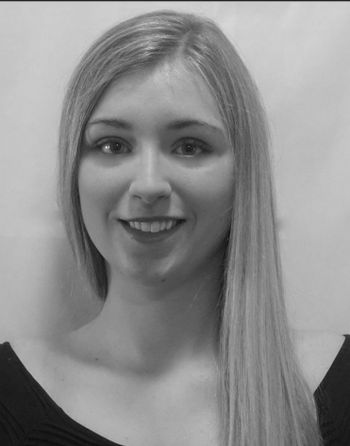Stanford's investigation of students reading Mein Kampf is latest in string of controversies
This scandal comes nearly one year after Stanford’s internal investigation into its Jewish students, which found that the university took steps to 'suppress' the campus' Jewish population in the 1950s.
But even in light of remedying past anti-Semitism, critics now contend that the university’s actions regarding the social media post cross the line of academic freedom.
Coming off accusations of rising anti-Semitism on campus, Stanford University is now hosting sensitivity trainings after a photo of two students reading Mein Kampf circulated on social media.
But this investigation is igniting new controversy over how the elite California university policies speech and behavior.
An unidentified student organization alerted the Stanford administration via the “Protected Identity Harm Reporting System” (PIH) to an image of two students reading Mein Kampf in their dorm room in a pose that mocks the stigma of reading controversial texts, Inside Higher Ed reports.
At the behest of the unnamed student organization that filed the complaint, Stanford administrators have “been engaged in conversation with a number of students, seeking to provide support and foster communication,” including diversity, equity, and inclusion anti-bias training.
This scandal comes nearly one year after Stanford faced public scrutiny over its perceived lack of support for its Jewish population.
The university launched an internal investigation in January 2022 into its historical treatment of Jewish students and applicants, which found that the university took steps to “suppress the number of Jewish students admitted” in the 1950s and intentionally covered up institutional anti-Semitism.
Also in 2022, Equal Employment Opportunity Commission (EEOC) Commissioner Andrea Lucas said accusations of modern-day anti-Semitism at Stanford were “deeply troubling.” Allegations included the institutional downplaying anti-Jewish discrimination and university sensitivity and diversity programming that lumped Jewish identity with white supremacy}
RELATED: Harvard Dean gives into media pressure, awards anti-Israel activist human rights fellowship
Stanford President Marc Tessier-Lavigne issued a public apology in October after the release of the findings, stating that the university will work “to ensure the supportive and bias-free experience for members of our Jewish community that we seek for all members of our Stanford community.”
But even in light of remedying past anti-Semitism, critics now contend that the university’s actions regarding the social media post cross the line of academic freedom.
Although Stanford denies that any student “is being punished or investigated by the University for reading a book,” the Foundation for Individual Rights and Expression (FIRE) disagrees.
FIRE contends, “Stanford can repeatedly insist the resolution process is voluntary, but students may nevertheless not see it that way if the university isn’t sufficiently transparent. While the university affirmed its support for academic freedom and freedom of expression in its response, those commitments mean little when not put into practice.”
“Whether the student was reading the book for a course, independent study, or using it as a prop in a joke, our concerns remain. The presence of the book is what prompted the filing of the PIH report,” according to FIRE.
Executive director of Hillel at Stanford, Rabbi Jessica Krischner, reported to Inside Higher Ed that the cavalier attitude of the students in the photo is what ought to be investigated.
As Krischner told Insider Higher Ed, “What worries me as a Jewish leader is rising antisemitism in our culture, general ignorance about both the Holocaust and Jews (different subjects, both important), and supporting Jewish students to be strong in their own identities and good citizens of the university while dealing with a thousand paper cuts of disrespect.”
Paul Weisser, a PhD candidate and graduate teaching assistant at Baylor University who has taught Mein Kampf, told Campus Reform “that it’s helpful to see the reasons behind [the rise of Nazism in the 1930s] for the sake of being able to combat the argument, not just have some sort of animus against something we don’t like.”
RELATED: Q+A: An executive director’s fight against anti-Semitism
Although Weisser calls for prudence in when, where, and how educators address ideas responsible for mass murder, he contends that teaching students about Mein Kampf is one of the best ways an educator can combat anti-Semitism.
Weisser reasons that if students encounter anti-Semitism on “hidden corners of the internet” or within their peer groups, it runs the risk of gaining “the sort of charm that something that’s sort of hidden and mysterious and foreboding gains.” Rather, addressing the issue boldly and bluntly is a “far more effective deterrent.”
FIRE reports that not only is Mein Kampf taught in at least one humanities class at Stanford but it is also available at the university library.
Campus Reform has contacted Stanford for comment and will update the story accordingly.
Follow Gabrielle M. Etzel on Twitter.

